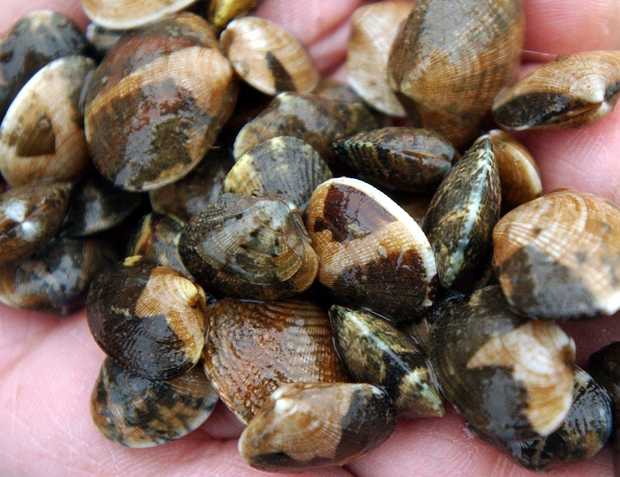
THE BELLINGHAM HERALD
LUMMI RESERVATION — Lummi Nation has closed 335 acres in Portage Bay to shellfish harvesting because of worsening water quality caused by fecal coliform bacteria.
The tribe consulted with the state Department of Health and volunteered to do so Sept. 3 after levels exceeded federal standards for commercial shellfish harvest.
Portage Bay is home to Lummi Nation’s ceremonial, subsistence and commercial shellfish beds.
Fecal coliform bacteria come from human and animal feces. The bacteria enter Whatcom County’s waterways in several ways — horse and cow manure, pet and wildlife waste, and failing septic systems — and indicate there could be pathogens absorbed by the shellfish that may sicken people who eat them.
The closure affects about 200 families on Lummi Reservation who make a living harvesting shellfish and as many as 5,000 tribal members who rely on Portage Bay shellfish for ceremonial and subsistence needs, according to the tribe.
This isn’t the first time the tribe has closed its shellfish beds in Portage Bay because of fecal coliform pollution. They did so in 1996 because of high levels of fecal coliform in the Nooksack River and streams that empty into Portage Bay.
At that time, the state Department of Ecology and the Environmental Protection Agency led a cleanup plan using state legislation approved in 1998 that required dairy farms to undergo routine inspections and create written plans for how they would contain manure and prevent it from washing into public waterways. Before 1998, dairy farms were inspected only if a complaint was made about a farmer.
Failing septic systems and municipal sewage systems also were addressed.
The effort cleaned up the Nooksack River and its tributaries and allowed 625 acres of tribal shellfish beds to reopen in 2003, and the last 115 acres to reopen three years later.
That decade cost the tribal community about $8.5 million in revenue, Lummi Nation said in a news release.
But in recent years, the Lummis have expressed concern about water quality once again degrading because cuts to budgets and enforcement created regulatory gaps.
“Everybody knows the reason that this is happening is there’s a lack of compliance and a lack of enforcement,” said Merle Jefferson, director of Lummi Natural Resources Department.
Lummi Tribal Chairman Timothy Ballew II echoed those concerns.
“Failure of our upstream partners to follow the policies developed to respond to the last closure has led to this disaster,” Ballew said in a news release. “Immediate actions are needed to right the problem. We are committed to doing the work required that will reopen the shellfish beds.”
Multiple agencies at the federal, state, local and tribal level are once again coordinating their efforts to lower fecal coliform in Whatcom County’s waterways, with county officials saying that the levels in the Nooksack River and Portage Bay have increased in the past five years.
That push includes a proposal for the County Council to create a locally driven, and ongoing, effort called the Whatcom County Pollution Identification and Correction Program. It goes before the County Council on Tuesday, Sept. 30.
“We feel like we’re making progress,” said Doug Allen, manager of Ecology’s Bellingham field office. “I’m still confident that we’re going to turn this around. It’s going to take all of us working really hard to do it.”
